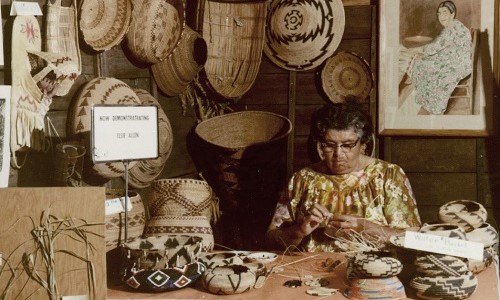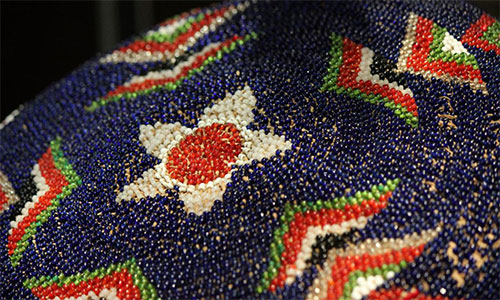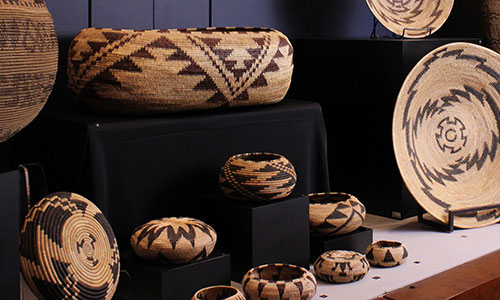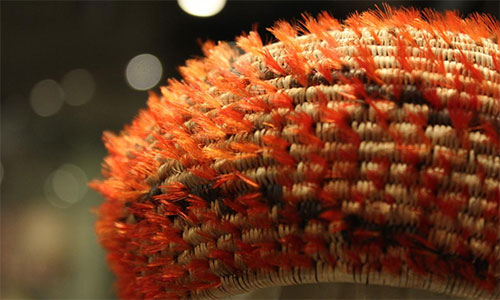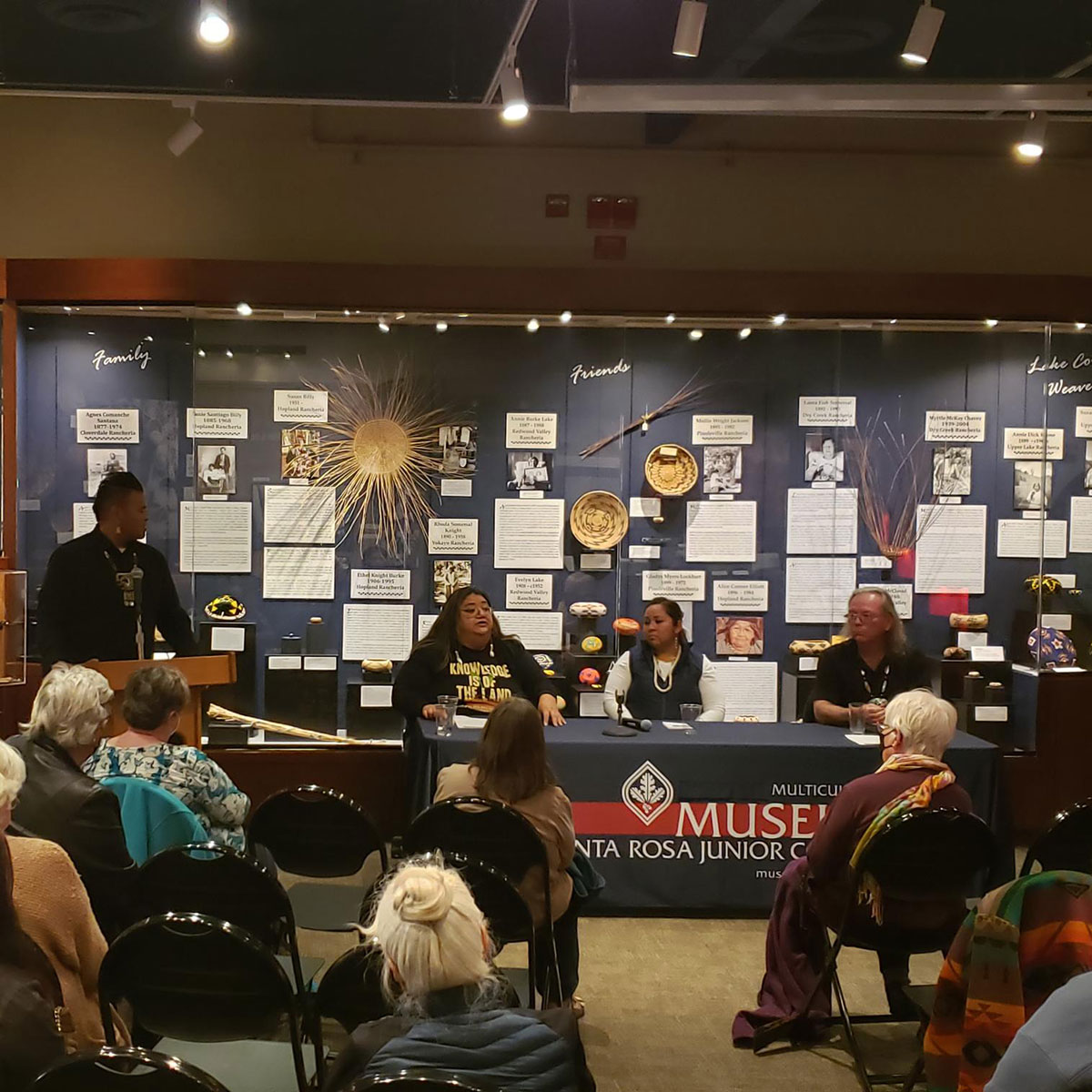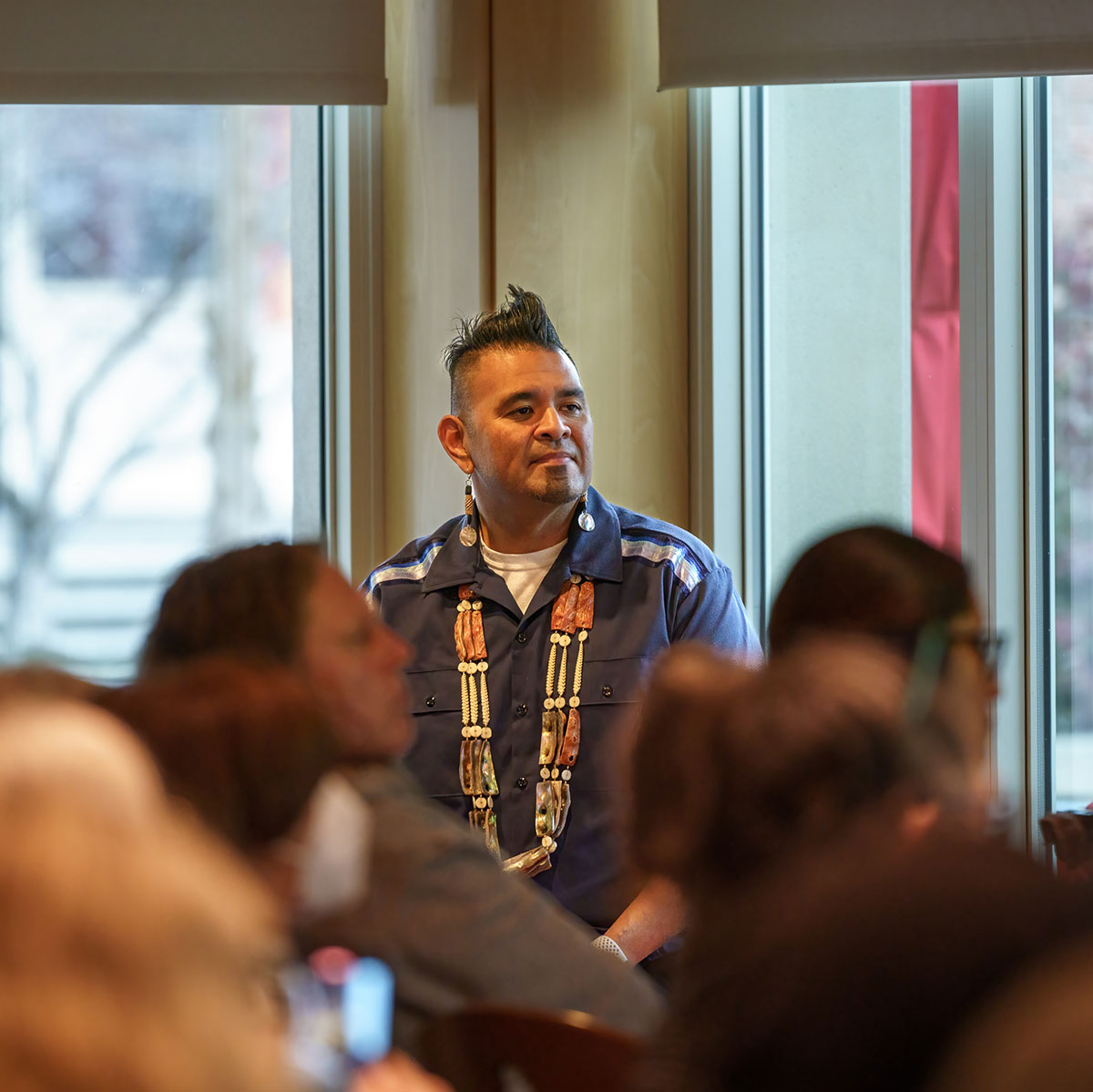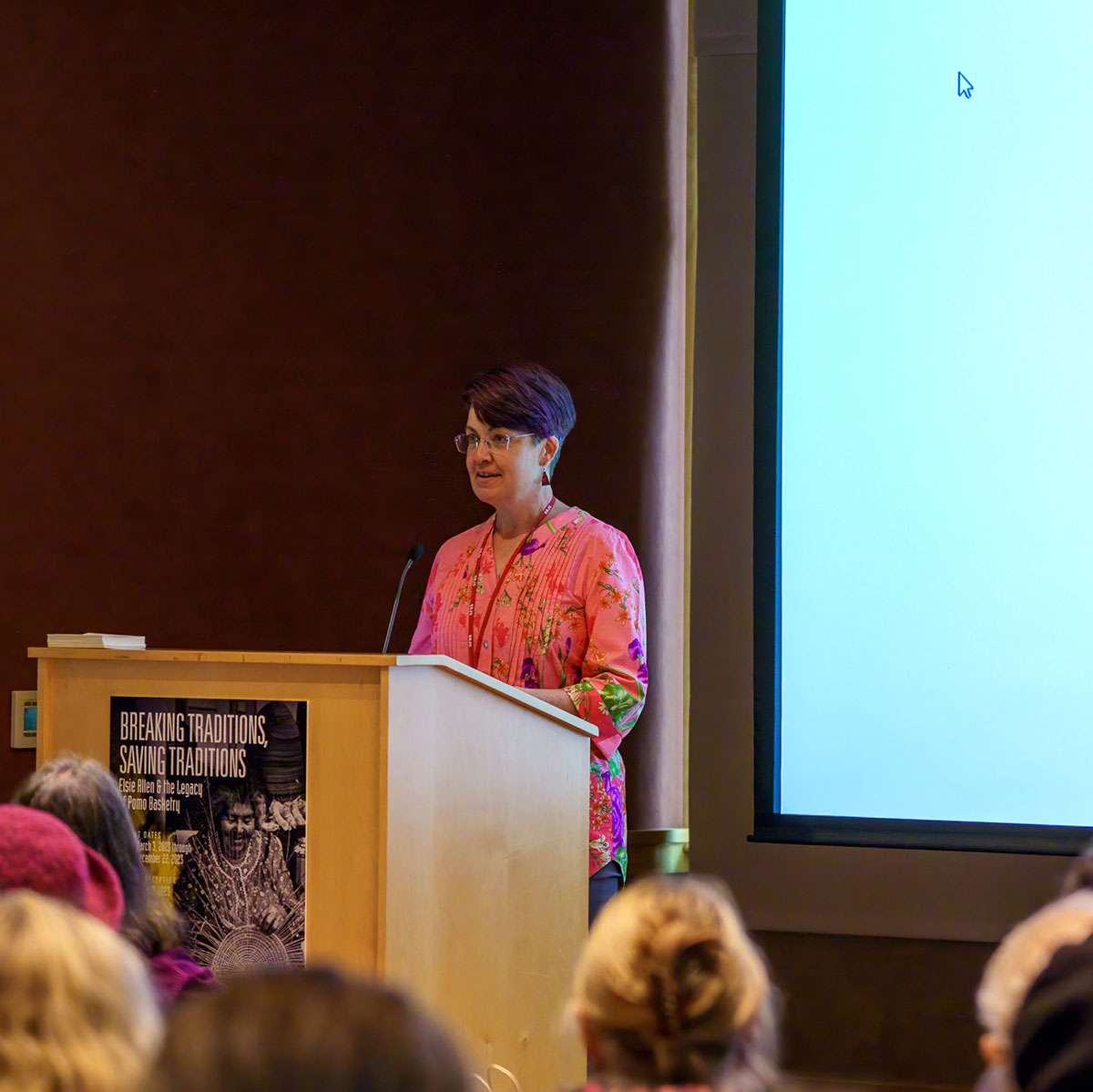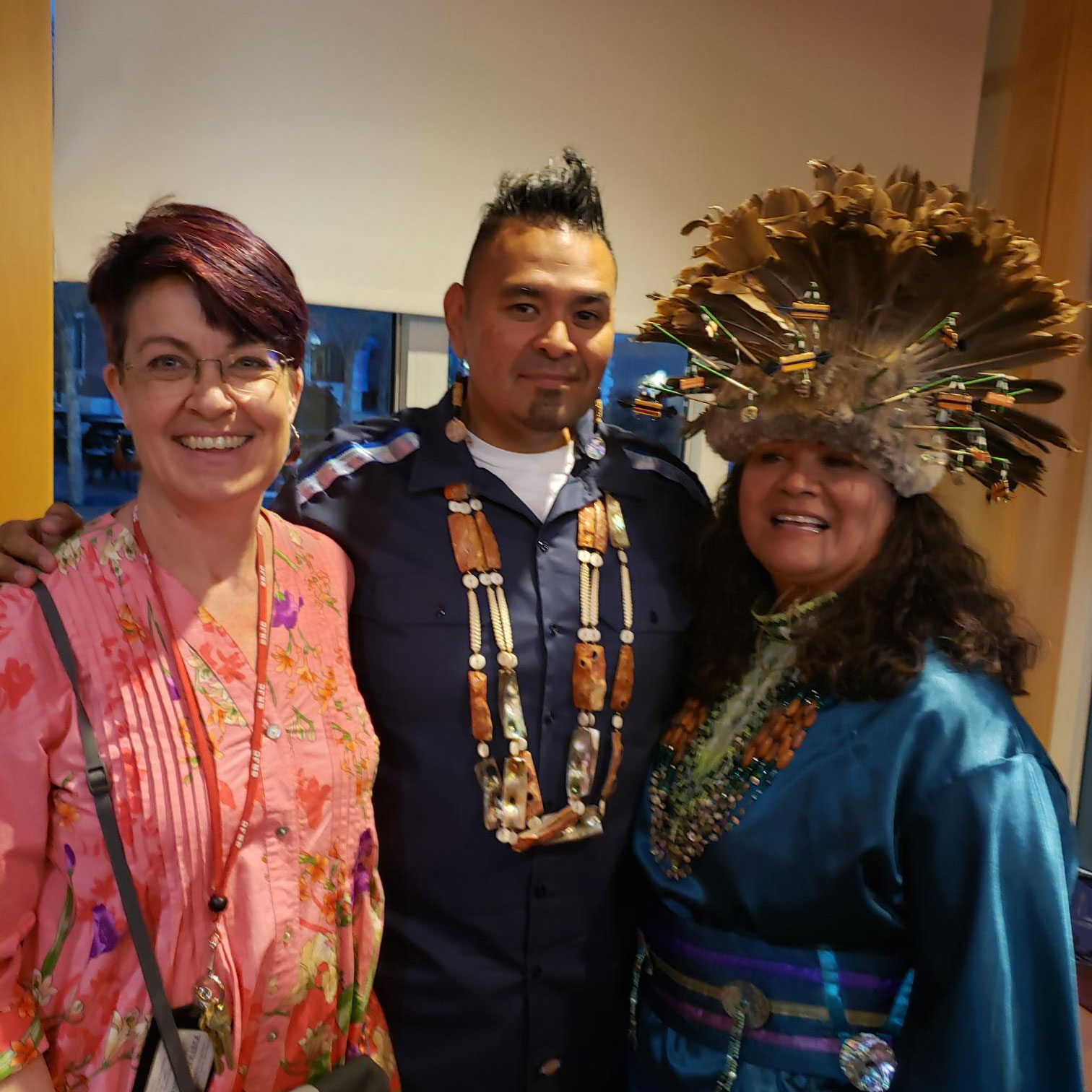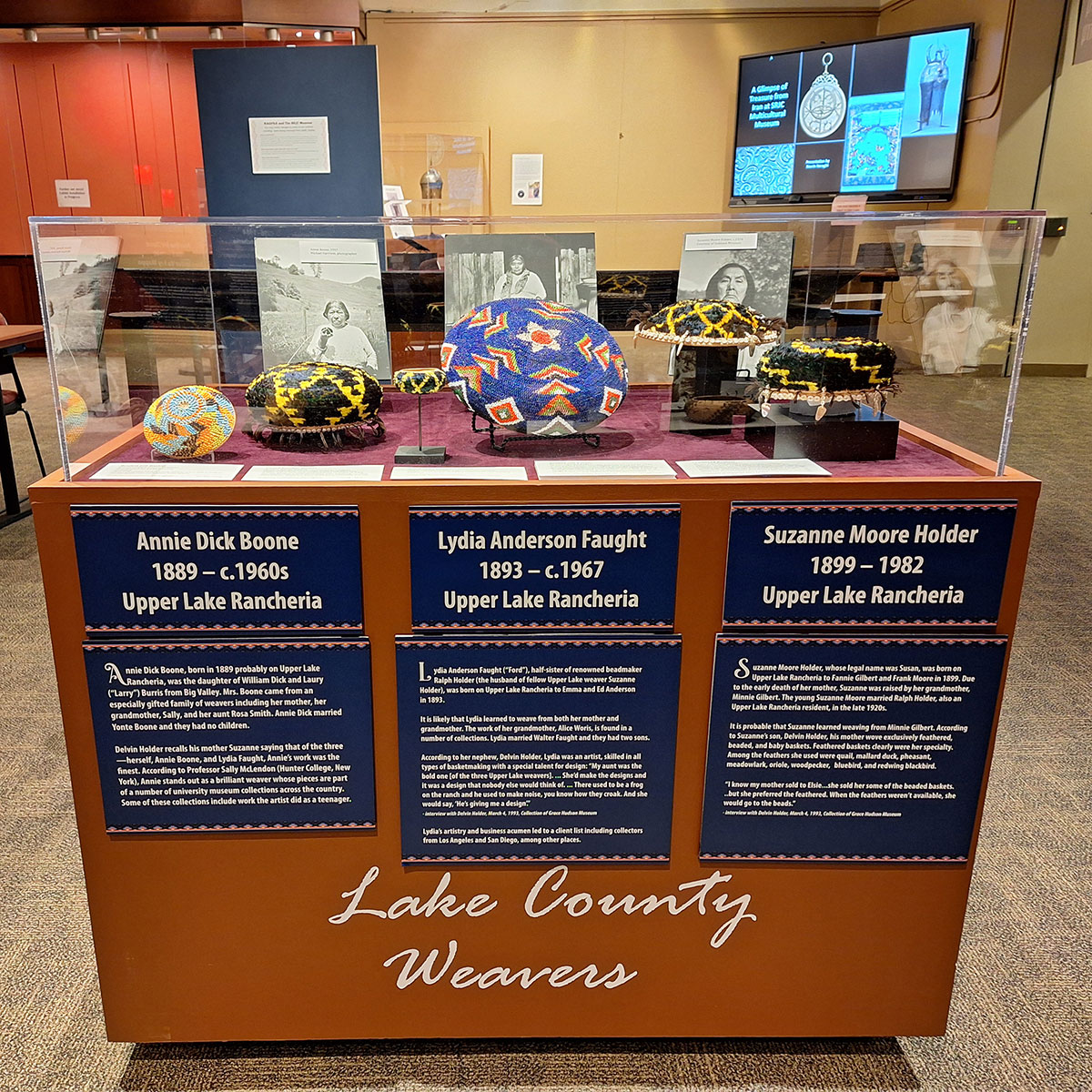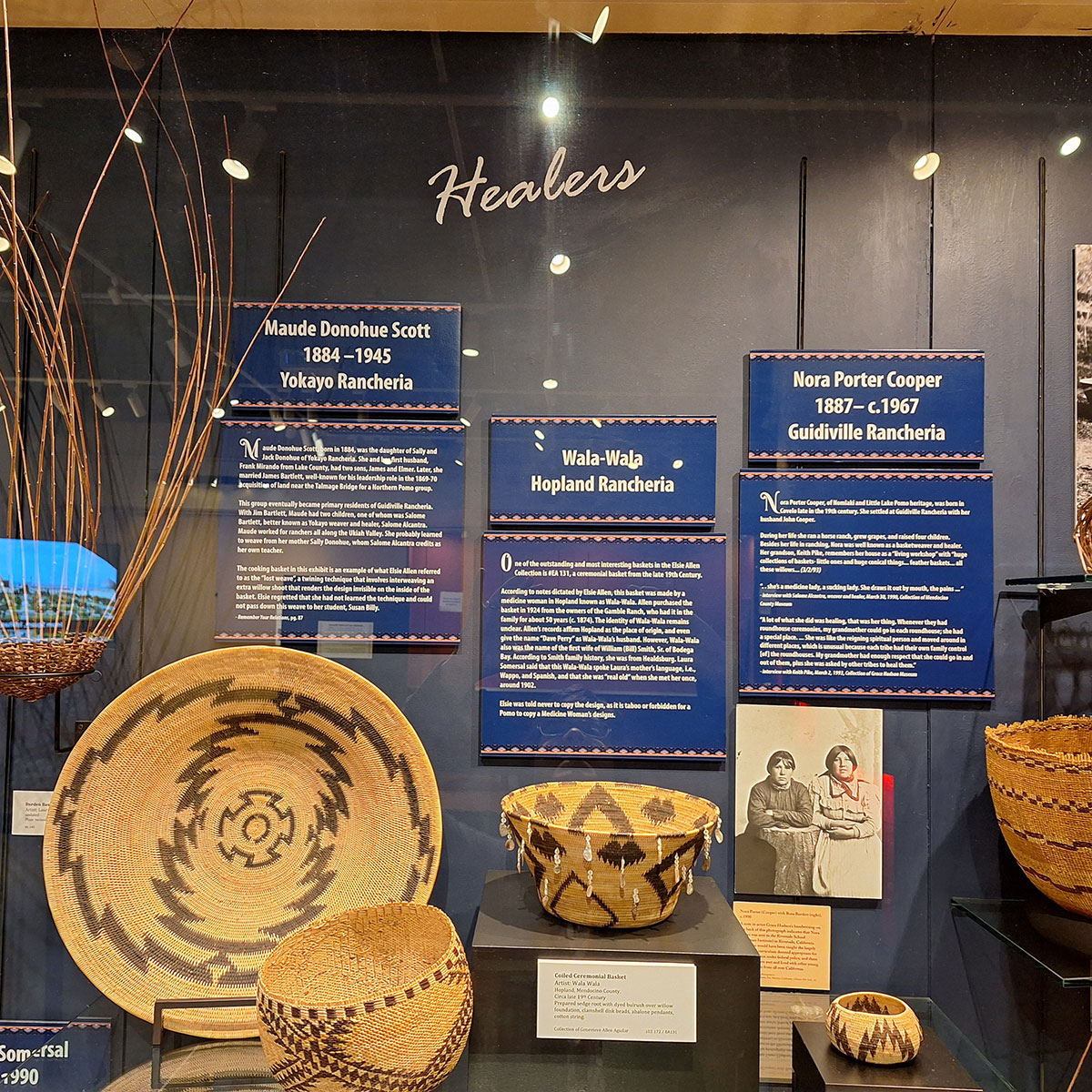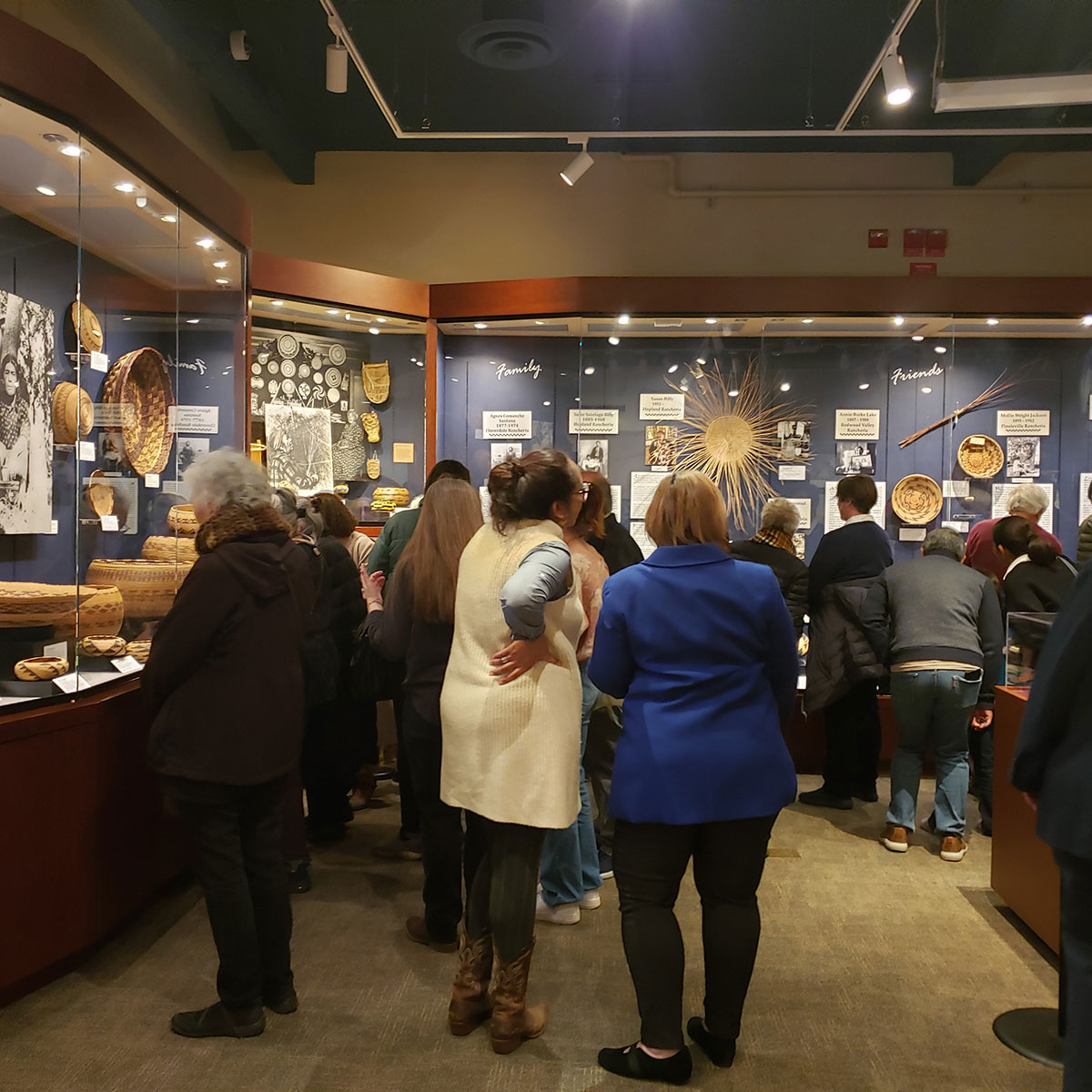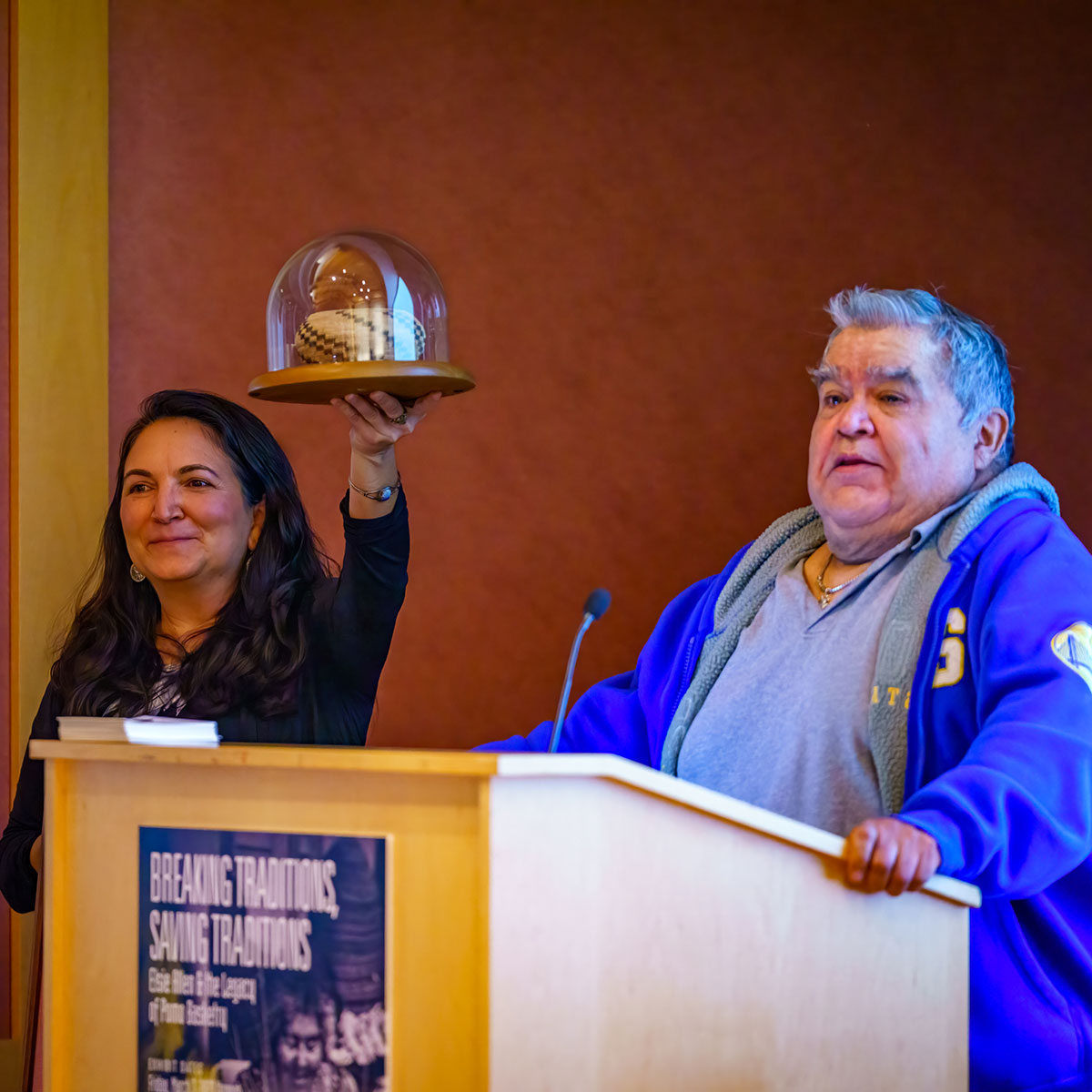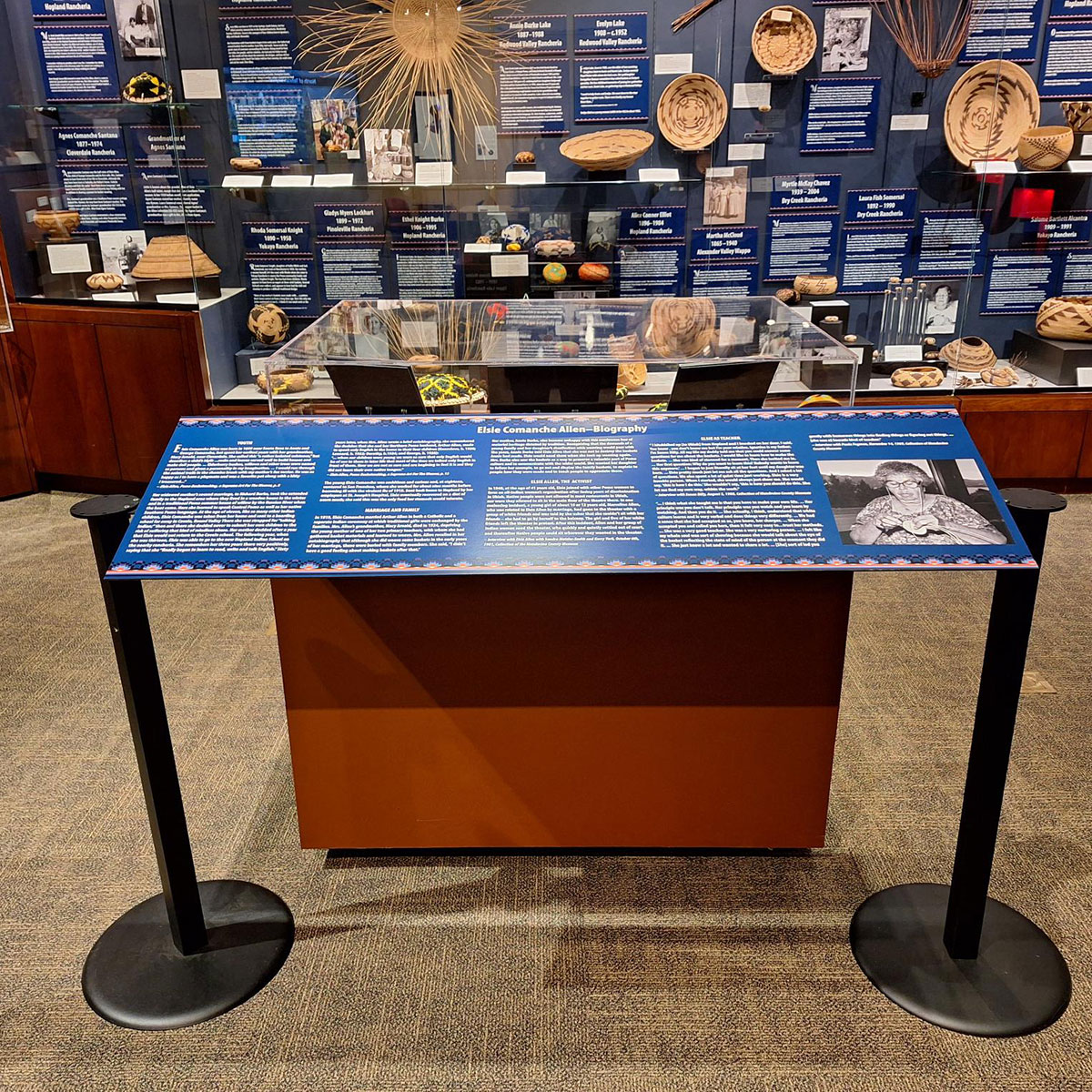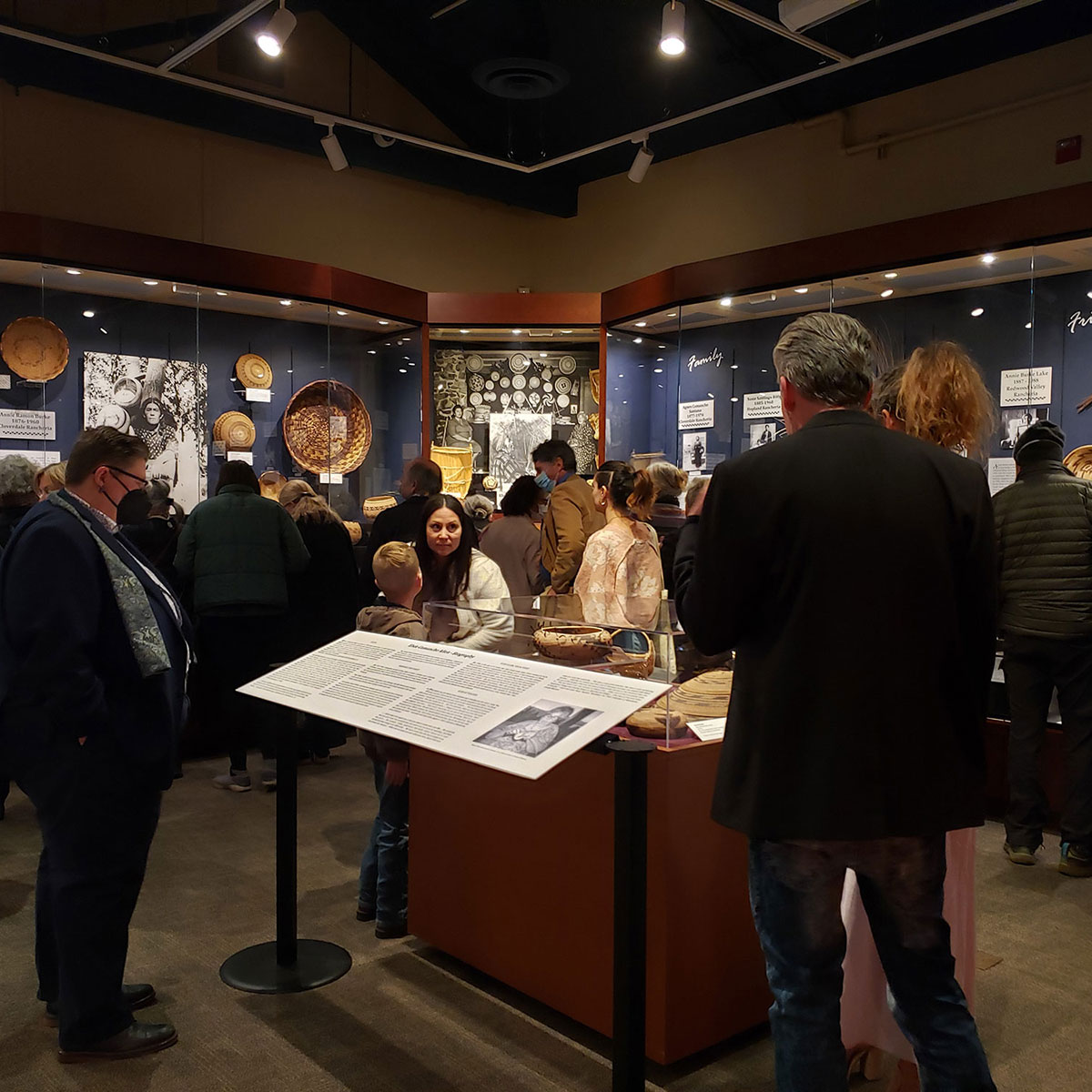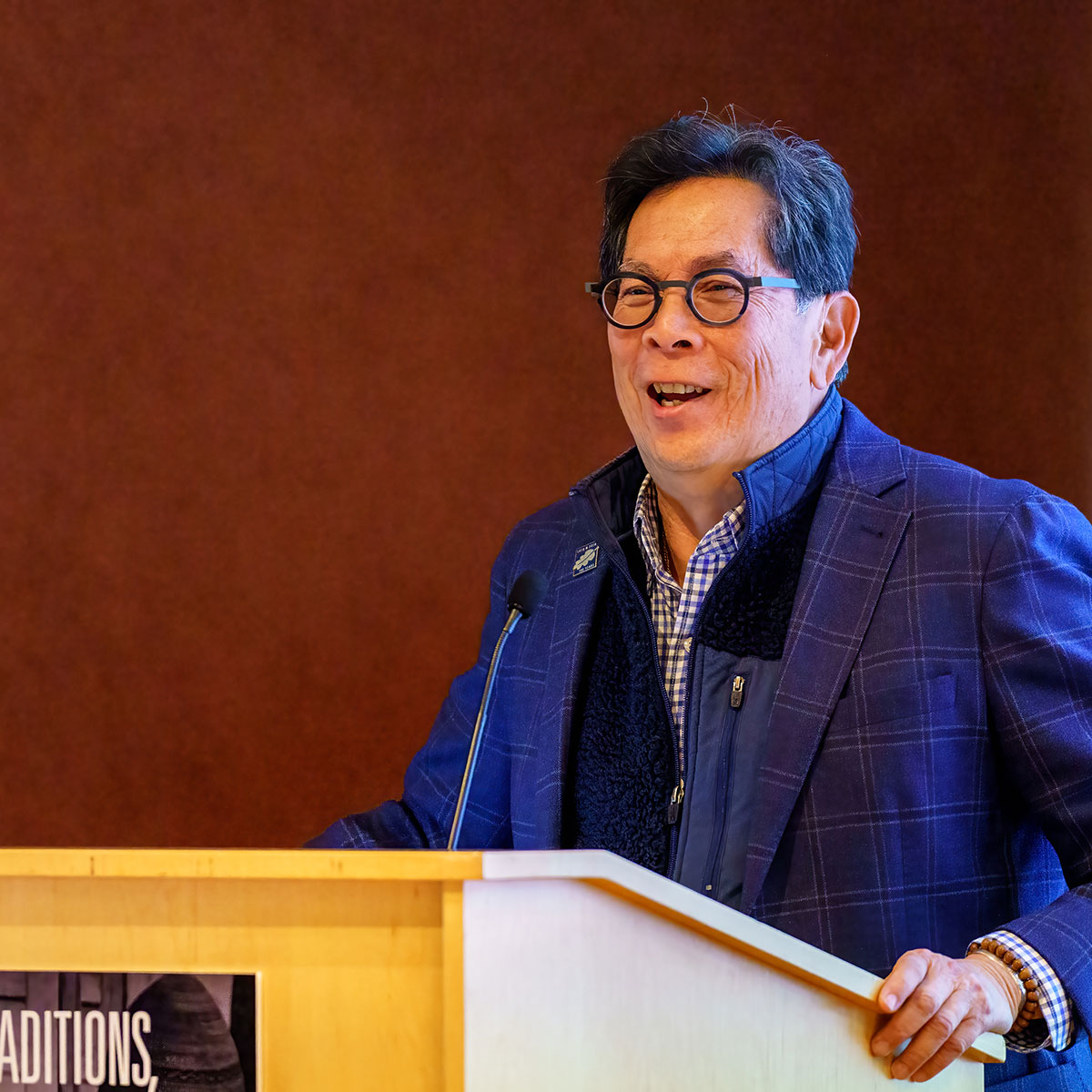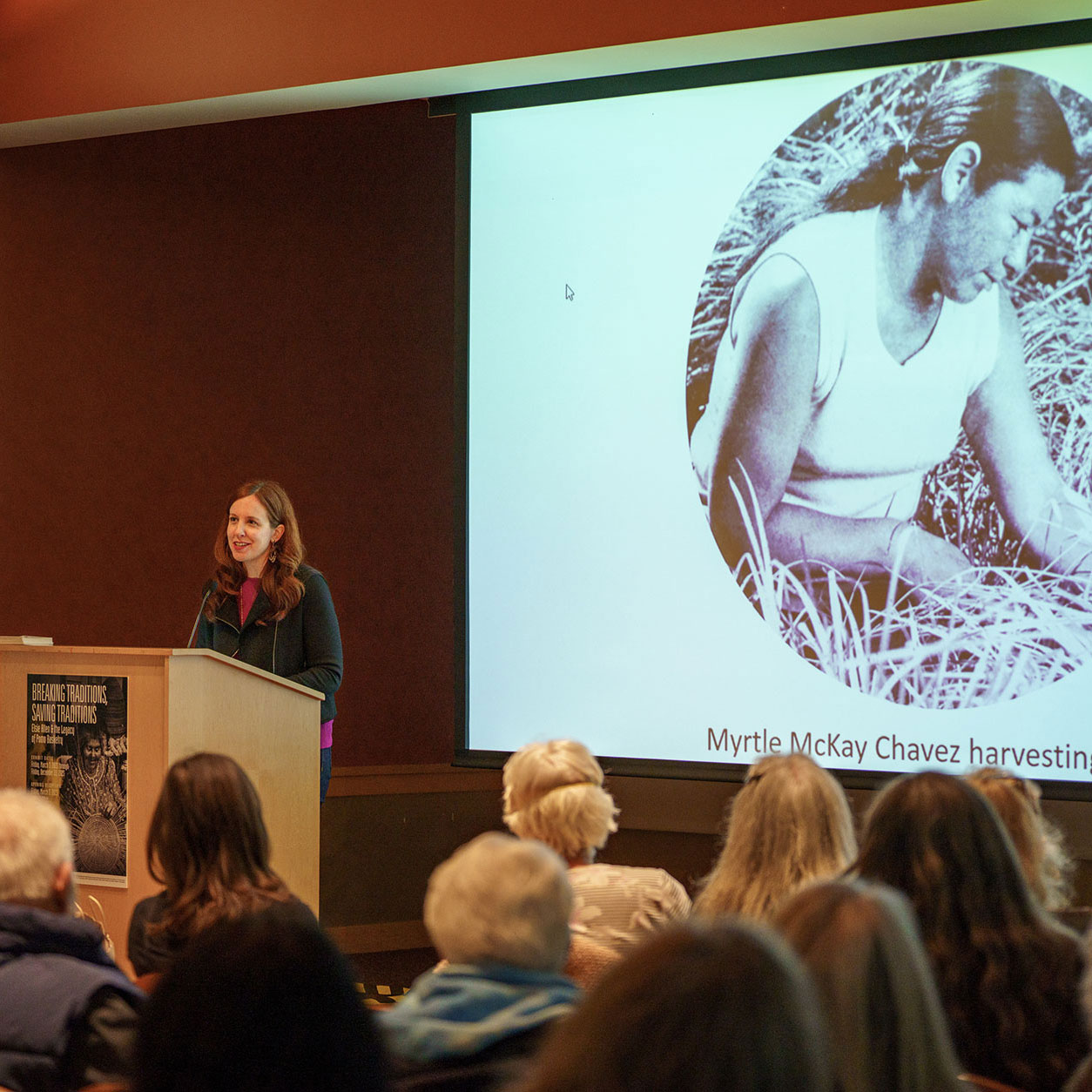Housed at the Santa Rosa Junior College Multicultural Museum
The Santa Rosa Junior College Multicultural Museum is honored to house, display, and preserve the Elsie Allen Pomo Basket Collection—a uniquely significant collection of Native American artistry and cultural legacy. This is the only known basketry collection of its size created and curated entirely by Native American weavers. It is also the largest such collection known to exist with such an exceptional level of documentation.
Acquired by the college in 2003, the collection’s roots run deep in Northern California. According to family accounts, even the Smithsonian Institution once expressed interest in acquiring the baskets—but the family chose to keep them close to home, ensuring the collection remained in the region where it was lovingly created.
The collection includes over 130 intricately woven baskets, ranging in size from that of a pencil eraser to nearly 40 inches in diameter. These works span from the late 1800s to the 1980s and include both functional and ceremonial pieces. Over 90 baskets are credited to 26 Pomo weavers, with approximately 30 woven by members of Elsie Allen’s immediate family. These baskets reflect the extraordinary artistry of some of the most skilled weavers in the world.
Elsie Comanche Allen (1899–1990) was born in Sonoma County and spent much of her life in Ukiah, Mendocino County. Though she began weaving as a child, she only dedicated herself fully to the art—and to teaching others—after retiring. Her passion for basketry was deeply influenced by her mother, Annie Ramon Burke (1876–1962), who began the family collection. In a break from Pomo tradition, Annie made an unusual request: she asked Elsie not to destroy her baskets after her death.
For centuries, it was customary for Pomo women’s baskets to be burned or buried with them, a practice that, over time, contributed to the erosion of the basketry tradition. With fewer examples to learn from, younger generations had little to guide their hands or connect them to the legacy of their ancestors.
Elsie honored her mother’s wish—and went further. She worked passionately to preserve Pomo basketry traditions, challenge burial customs, and build a collection that would educate and inspire future generations. Thanks to her efforts, the collection eventually grew to 131 baskets, each a testament to a multigenerational legacy of artistry and cultural survival.
As described in Remember Your Relations: The Elsie Allen Baskets, Family, and Friends by Suzanne Abel-Vidor, Dot Brovarney, and Susan Billy, this collection "reflects a multigenerational family effort—mother to daughter to granddaughter—to collect and preserve the work of relations, friends, and unknown weavers whose baskets were somehow ‘special.’ To date, 26 of the Native weavers whose baskets are in the collection have been identified—a remarkably high level of documentation."
This collection is not just a museum display—it is a living tribute to the resilience, artistry, and legacy of the Pomo people.
Breaking Traditions, Saving Traditions: Elsie Allen and the Legacy of Pomo Basketry
Exhibit Reception | March 3, 2023
Presented by the Multicultural Museum, Santa Rosa Junior College
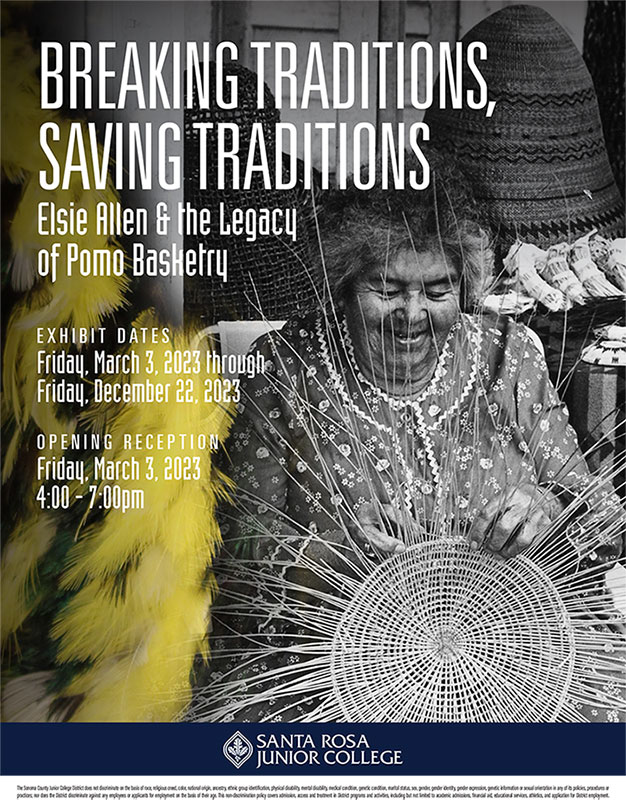 On Friday, March 3, 2023, nearly 200 guests gathered at Santa Rosa Junior College’s Student Activities Center for the opening reception of Breaking Traditions, Saving Traditions: Elsie Allen and the Legacy of Pomo Basketry. This landmark exhibit was the first time the Elsie Allen Pomo Basket Collection had been displayed in its entirety since it was transferred to SRJC’s care twenty years ago.
On Friday, March 3, 2023, nearly 200 guests gathered at Santa Rosa Junior College’s Student Activities Center for the opening reception of Breaking Traditions, Saving Traditions: Elsie Allen and the Legacy of Pomo Basketry. This landmark exhibit was the first time the Elsie Allen Pomo Basket Collection had been displayed in its entirety since it was transferred to SRJC’s care twenty years ago.
The exhibit was co-curated by Museum Supervisor and Curator Rachel Minor and guest curator Silver Galleto, founder of the Pomo Weaver’s Society and a member of the Cloverdale Rancheria. Through Silver's mentorship and leadership, the exhibit honored not only the artistry of Pomo basketry but also the deep cultural and familial legacy that surrounds it.
The evening began with a blessing by Elizabeth Elgin DeRouen, followed by an opening song from Silver Galleto. Speakers included Rachel Minor, Sarah Laggos of the SRJC Foundation, Linda and Dan Aguilar—grandchildren of Elsie Allen—as well as Allen’s niece, Susan Billy, herself a weaver who was personally mentored by her aunt. Silver Galleto closed the program with final remarks.
A memorable highlight of the evening came when Dan Aguilar shared heartfelt and humorous stories about his grandmother, Elsie Allen, and great-grandmother, Annie Burke. His storytelling brought laughter and joy to the audience and was later captured in an interview, which can be viewed here:
In addition to the extraordinary basket collection, the exhibit featured a wall of family photographs and a remarkable 1980 video interview with Elsie Allen, where she discussed basketry, cultural heritage, and history in her own words.
Watch the 1980 interview with Elsie Allen
This exhibit is more than a display of artistic craftsmanship—it is a testament to a family’s enduring commitment to the preservation and celebration of Pomo culture. It continues to resonate deeply with the descendants of the 23+ weavers featured, many of whom are weavers themselves, carrying forward this vital cultural tradition.
